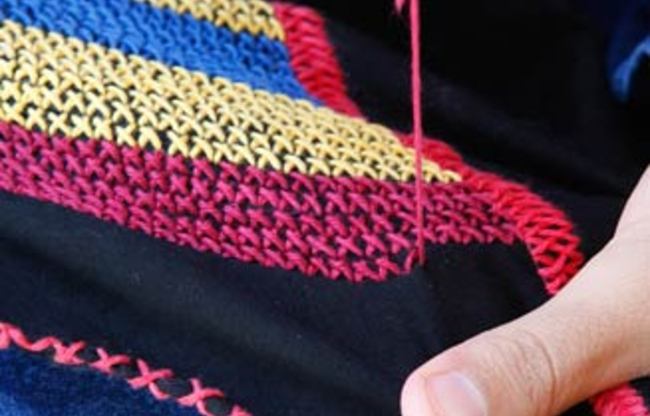There is an unstoppable force that drives Ousso (Mohamed Lotfy), Egypt’s foremost guitar player. It is not just his love for music, but his belief in people, in young musicians, in the possibility to change and improvement, in the importance of learning and developing one’s skills, and in the great outcome of devotion to what we are passionate about. It is his belief that there are many hidden talents out there, which just need someone to pave the road for them.
Ousso’s latest project is entitled “S.O. Soloist.” Realizing that being a solo player is underestimated in Egypt, he felt the urge to create a platform for those unrecognized talents all around the country.
Ousso will invite them to Cairo to spend three months learning from professionals, rehearsing in studios, acquiring high-quality instruments and producing their own work, which in return might be broadcast on Nile FM and other radio stations. Those young artists also have the opportunity to collaborate with a number of prominent bands. This project aims to connect all of Egypt to promote the idea of a “soloist,” who in return may progress into a founder of a band.
Ousso’s most high-profiled endeavour to date was the highly successful S.O.S. music fest, an attempt to push alternative and underground bands to the forefront of popular culture.
”I realized that musicians are differently wired according to what they play, and so I intentionally put those with the opposite directions and tastes on stage to perform together,” Ousso said. “Even the audience, which listens to one genre, had a chance to make peace with other schools of music, with new sounds and the fans of those.”
Nagham Masry — the band he founded in 1999 with lead singer Sherbini — is the closest project to Ousso’s heart; the lab where he had the chance to experiment the most. Armed with the immortal words of great poets Salah Jahin and Amal Donkol, he tried to introduce the Egyptian audience to new rhythms and music. Ousso composes all the music, Sherbini lends his vocals and both choose lyrics together.
Ousso typically sees the world anew each day. His apartment tells of an artist tuned to the unusual and unexpected. The wide open space, with guitars adorning the wall and dim-light and background music inducing a meditative mood, is merely a reflection of how receptive he is; no walls to prevent anything from interjecting his thoughts.
One of Ousso’s habitual inclinations is coming up with storylines with cartoon characters. “While being stuck in traffic, I see cars talking to each other and complaining about how humans forced them into this,” he says. This story sticks with him, he tries out lines or chords, until image and sound are compatible. The track “Duck Tears,” written for oriental jazz group Eftekasat, is a good example.
The story revolved around him walking with a bunch of ducks playing guitar in a garden. The ducks eventually died and then come back to life. Each note and sound in “Duck Tears” tells a part of his story. Sometimes he detunes his guitar and listens to the outcome or just places his fingers randomly on the strings to produce an unusual sound or throws a ball and plays the pattern he hears with his guitar. This new sound might become the starting point of a production. “Anything can inspire; we just need to stay tuned,” notes Ousso.
Ousso’s infatuation with the guitar began when he was introduced to virtuoso American guitarist Slash from Guns N’ Roses fame at the age of 12. When he heard for the first time the “overdrive distortion” of Slash’s music, he was instantly hooked yet did not quite grasp which instrument produced that effect. He then devoted his time and energy to learning and playing the guitar. When he started recording commercially, he tried to introduce the “overdrive distortion” to Egyptian musicians at the height of the heavy-metal witch-hunt in the mid-‘90s. Naturally, it was rejected at the beginning. Nevertheless, Ousso insisted on playing his brand of music and in return for a smaller pay-check.
Ousso has detoured into a number of comfortable commercial avenues that didn’t pay off artistically. Yet, his most inspiring characteristic is his refusal to conform. Now he’s back, still determined to create a difference in a scene hungry for change.



